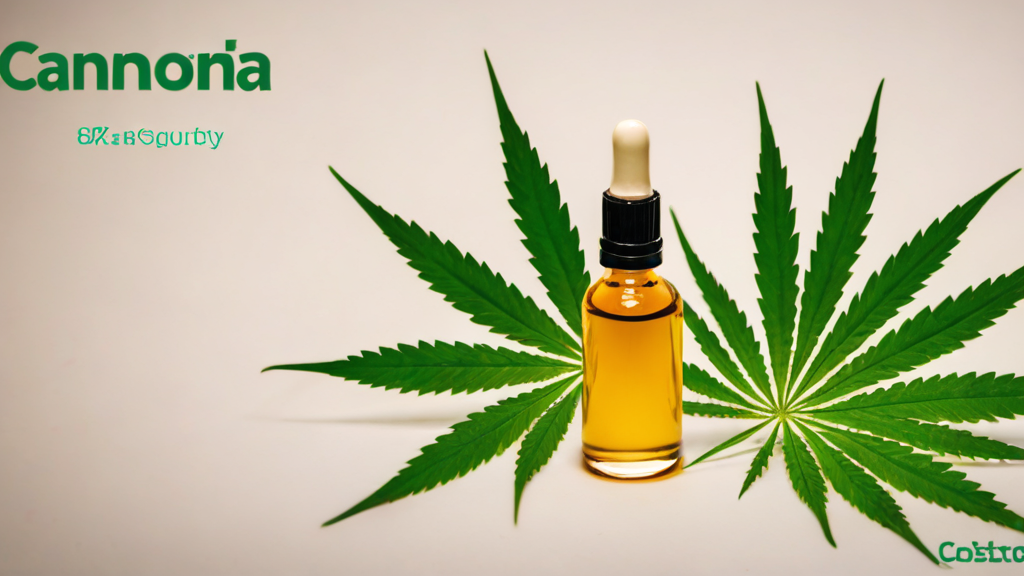Introduction
Cannabis tinctures are an ancient and effective way to use this plant for medicinal purposes. Throughout history, tinctures have been used by various cultures to treat a wide range of ailments. In this article, we will explore in detail what a cannabis tincture is, how it is used, and what its health benefits are.
What is a cannabis tincture?
A cannabis tincture is a liquid extract of the cannabis plant used for medicinal purposes. It is obtained by submerging cannabis flowers in high-proof alcohol for a certain period of time. The alcohol extracts the active compounds from the plant, such as cannabinoids, terpenes and flavonoids, thus creating a concentrated cannabis solution.
Cannabis tinctures are known for their versatility and ease of use. They can be taken orally, sublingually or even added to foods and drinks. Additionally, tinctures allow for precise dosing, making them ideal for those who want to control the amount of cannabis they consume.
Health Benefits of Cannabis Tinctures
Cannabis tinctures offer a number of health benefits. Below are some of the most notable ones:
1. Pain relief
Cannabis has been used for centuries as a natural pain reliever. Cannabis tinctures can provide pain relief for a variety of conditions, such as arthritis, migraines, and chronic pain. Active compounds in cannabis, such as THC and CBD, interact with pain receptors in the body, which can reduce the sensation of pain.
2. Reduction of anxiety and stress
Many people turn to cannabis to relieve anxiety and stress. Cannabis tinctures can be an effective option for those looking for quick and discreet relief. The cannabinoids present in the tincture can help calm the mind and promote relaxation.
3. Improved sleep
Insomnia and other sleep disorders can negatively affect quality of life. Cannabis tinctures can help improve sleep by promoting relaxation and reducing anxiety. Many people find that taking a small amount of tincture before bed helps them fall asleep more easily and have more restful sleep.
4. Control of symptoms of chronic diseases
Cannabis tinctures may also be beneficial for those suffering from chronic diseases, such as fibromyalgia, multiple sclerosis, and Crohn’s disease. The cannabinoids present in the tincture can help reduce inflammation, relieve pain, and improve overall quality of life.
How to use cannabis tinctures
Cannabis tinctures can be used in a variety of ways, depending on individual needs and preferences. Below are some common ways to use tinctures:
1. Sublingual consumption
A popular way to use cannabis tinctures is to take them sublingually. To do this, a few drops of tincture are placed under the tongue and held there for a few seconds before swallowing. In this way, the active compounds in cannabis are rapidly absorbed through the blood vessels under the tongue, allowing for a rapid onset of effects.
2. Mix with food and drinks
Another option is to add cannabis tinctures to foods and drinks. They can be mixed with smoothies, juices, teas and even cooking recipes. By adding the tincture to food, the active compounds in cannabis are metabolized in the liver and the effects may take longer to appear, but they may also last longer.
3. Topical use
In addition to oral administration, cannabis tinctures can also be used topically. They can be applied directly to the skin to relieve pain, reduce inflammation, and treat skin conditions such as acne and psoriasis. However, it is important to note that topical tinctures will not produce psychoactive effects, as the active compounds do not penetrate the bloodstream.
Conclusion
Cannabis tinctures are a versatile and effective way to use this plant for medicinal purposes. They offer a number of health benefits, such as pain relief, anxiety reduction, and improved sleep. Additionally, tinctures allow for precise dosing and can be used in a variety of ways, including sublingual administration, mixing with foods and beverages, and topical use. If you are looking for a natural alternative to treat various ailments, cannabis tinctures can be an excellent option.
